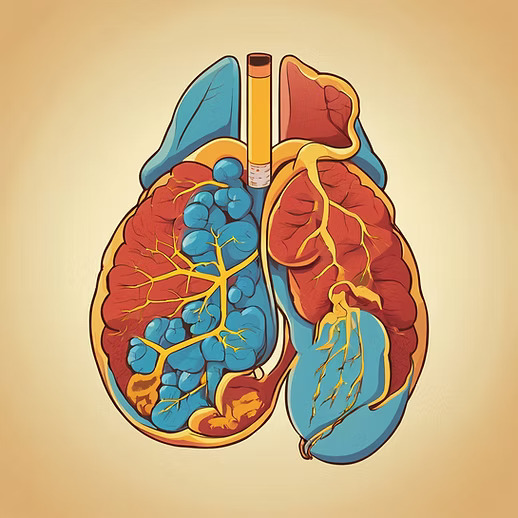The Harmful Effects of Smoking on the Body: Emotional and Physical Impact
Smoking is a habit that deeply affects not only an individual's physical health but also their emotional and social life. With every breath, the physical damage caused by tobacco in the body is not the only consequence, but the emotional burdens it creates in our lives must not be overlooked. While people often turn to smoking as a way to cope with stress, this habit leads to greater anxiety and an unhealthy lifestyle over time.
Individuals who smoke face health problems on a daily basis. Diseases like lung cancer, heart disease, and chronic obstructive pulmonary disease (COPD) are inevitable outcomes of smoking. However, beyond these, smoking threatens a person’s social life, relationships, and overall quality of life.
The losses caused by smoking are not limited to individual health problems; they also damage our connections with loved ones. This leads to emotional distress, increasing feelings of anxiety and sadness.
1. Effects on the Respiratory System
Cigarette smoke causes various damage to the lungs. Studies show that smokers are at a significantly higher risk of developing respiratory diseases such as lung cancer, chronic obstructive pulmonary disease (COPD), and asthma. A study conducted by Kelley et al. (2016) noted that smokers have a 15 times higher risk of developing lung cancer compared to non-smokers.
2. Cardiovascular Health
Smoking also negatively affects heart and vascular health. According to the CDC (Centers for Disease Control and Prevention), smoking increases the risk of heart attacks and strokes. Nicotine causes blood vessels to constrict and increases blood pressure, creating a foundation for heart diseases. Moreover, smokers are at a higher risk of blood clotting.
3. Effects on the Immune System
Smoking has destructive effects on the immune system. Research by Narayana et al. (2020) found that smoking weakens the immune response and decreases resistance to infections. The harmful chemicals in tobacco smoke negatively affect immune cells’ functions, making the body more susceptible to various infections.
4. Increased Risk of Cancer
One of the most significant harms of smoking is the increased risk of cancer. According to the World Health Organization (WHO), smoking is linked to several types of cancer, including oral, throat, esophageal, pancreatic, and bladder cancer. Tobacco products contain carcinogenic substances that cause DNA damage and lead to cellular mutations.
5. Mental Health
Smoking not only affects physical health but also has negative effects on mental health. A study by Boden et al. (2010) found that smokers are more likely to experience mental health issues such as depression and anxiety. While nicotine may provide a temporary sense of relief, it can trigger such issues in the long run.
The harmful effects of smoking on the body have been supported by various scientific studies. Respiratory diseases, heart and vascular diseases, cancer, weakened immune systems, and mental health issues are just some of the negative consequences that arise from smoking. Tobacco use, which poses serious health threats, significantly reduces individuals' quality of life and shortens their lifespan. Therefore, reducing or quitting smoking is critical for individuals to protect their health. This step is vital not only for physical health but also for emotional and mental well-being.


